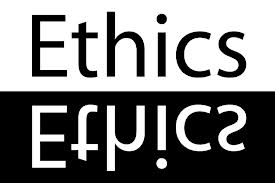“Never in my wildest dreams did I see this coming. When I first started “borrowing” from the company I had every intent of paying back what I took. Heck, I did pay some of it back…at least at the beginning!” Those were the words Mark said as he confessed that the life he was living was, for the most part, an illusion. Truth be told, Mark, for all his legitimate successes, had over time become no more than a liar and a thief. His choices created consequences that he never dreamed  were possible.
were possible.
Mark’s recantation of his ethical fall is all too common. People who fold their arms stating “I would never do something illegal much less unethical!” find that what triggers inappropriate behavior is a basic part of human nature. We are all subject to temptation and therefore can and do make bad choices.
If bad choices lead to tough consequences, what can we do to identify bad behavior before it starts? What can we do, as managers or leaders, to prevent unethical choices from being made in the first place? Those are two very profound questions, both of which are at the heart of why it is critical to talk about the Human Side of Ethics in your organization.
How Does Bad Behavior Start?
Research has shown that three behaviors are at the core of what would cause or allow an otherwise ethical person to make unethical and potentially illegal choices:
Need
Or, perceived pressure that a person is experiencing. Need may come in a variety of forms. The person who is in too much debt likely experiences financial strain – which was the root of Mark’s need. Alice, a church secretary, found her need triggered by her granddaughter’s diagnosis of cancer. Infamous Bernie Madoff’s need was certainly not money; likely, he was triggered by the need to be infallible. Whatever the pressure, need is the core emotional state that starts the ball rolling from a choice that is ethical to unethical.
Opportunity
It makes no difference what your need may be if you don’t have the opportunity to satisfy it. Then there is no fuel for the potential unethical fire. Mark was a trusted employee, and with that trust came opportunity. Alice was trusted, and had been for so many years that no one could comprehend she was capable of any unethical activity. Madoff took opportunity founded in trust to a new level.
Rationalization
Need combined with opportunity provides a firm foundation, but the glue that holds unethical activity together is the ability to rationalize that what is wrong, is right. If you ask most people found guilty of unethical/illegal behavior, they will tell you they felt their actions were legitimate. Mark, for example, rationalized that he was not “stealing” money as long as his intent was to pay it back. Further, he solidified this mental game by paying some of the money back. “Surely, I wasn’t guilty of stealing money as long as I was paying it back,” he stated.
The mind can be tricky and when you combine need with opportunity, and can rationalize bad behavior as good, you have the perfect storm to move from ethical to unethical, and potential illegal, behavior.
What Can We Do to Prevent Unethical Activities?
As business managers and association leaders there are clear actions we can take that can help keep folks between the ethical lines.
Look for Need!
We can’t control what needs our employees have but we can be aware of any changes or activities that would suggest an increase in need and the stress that need brings. For example, Mark shared that he been receiving calls at work from creditors which was when the pressure intensified to find a solution. Signs to look for are: (1) calls from creditors or personal calls intensifying at work; (2) abnormal purchases without apparent new sources of funding; or (3) lifestyle changes – marital issues or challenges with aging parents.
Minimize Opportunities
The most effective course of action to keep our employees and associates between ethical lines is to remove opportunities to conduct unethical activities. For example, Mark embezzled money from a client’s trust fund. Had the bank account that Mark used required two signatures, the embezzlement would have been far more difficult. What would Mark do, ask the co-signer to help him steal money from the trust? So, less opportunity equals less chance for unethical activity.
Train Rationalization
When employees hear what rationalization sounds like, when we bring to consciousness what is active in the subconscious, it becomes far easier to support each other in our ethical choices. At a recent ethics seminar an attendee commented, “But everybody does it.” As those words were spoken, another participant yelled out, “Rationalization!” The crowd erupted in laughter as people began to see just how simple and easy it is to rationalize the “little things.” And, when we rationalize the little, the larger unethical choices become easier to swallow.
The Value of Good Choices
Want to create a culture of ethical behavior in your organization? It’s easy if you think about it. When you start by understanding how good people make bad choices, and follow it with an effective ethics-training program that reinforces ethical choices and accountability, you have a recipe for success. Every choice has a consequence. What choices do you make for your organization to help keep your most valuable assets between the ethical lines?
– See more at: http://www.lifehealth.com/good-people-make-bad-choices/#sthash.KZK9pO6p.8Ghziihi.dpuf


A very important Topic you raied Chuck. I shared yor article on my social Networks.
Thank you ad Kind regards fro Germany
Hansjörg
http://www.der-bank-blog.de